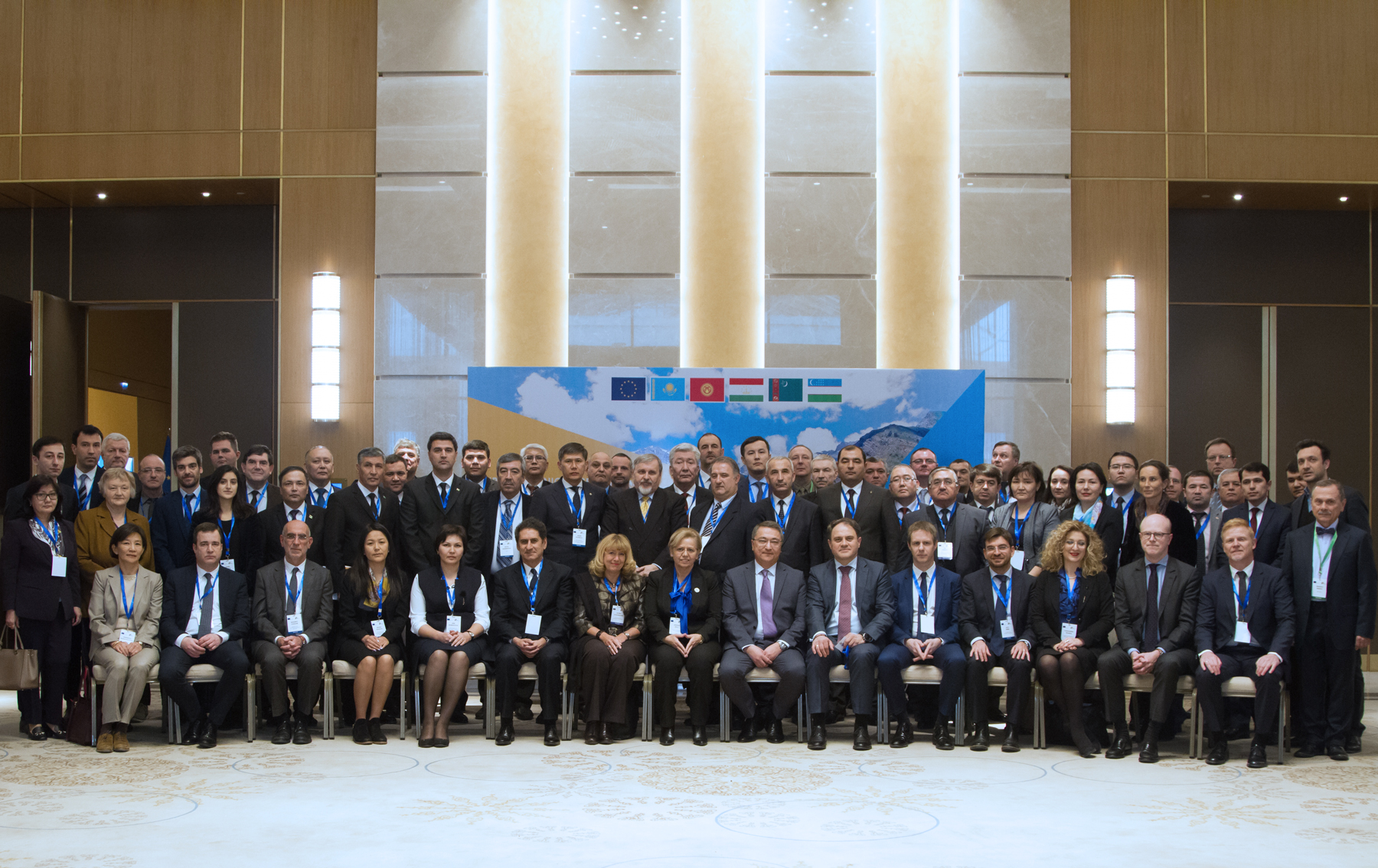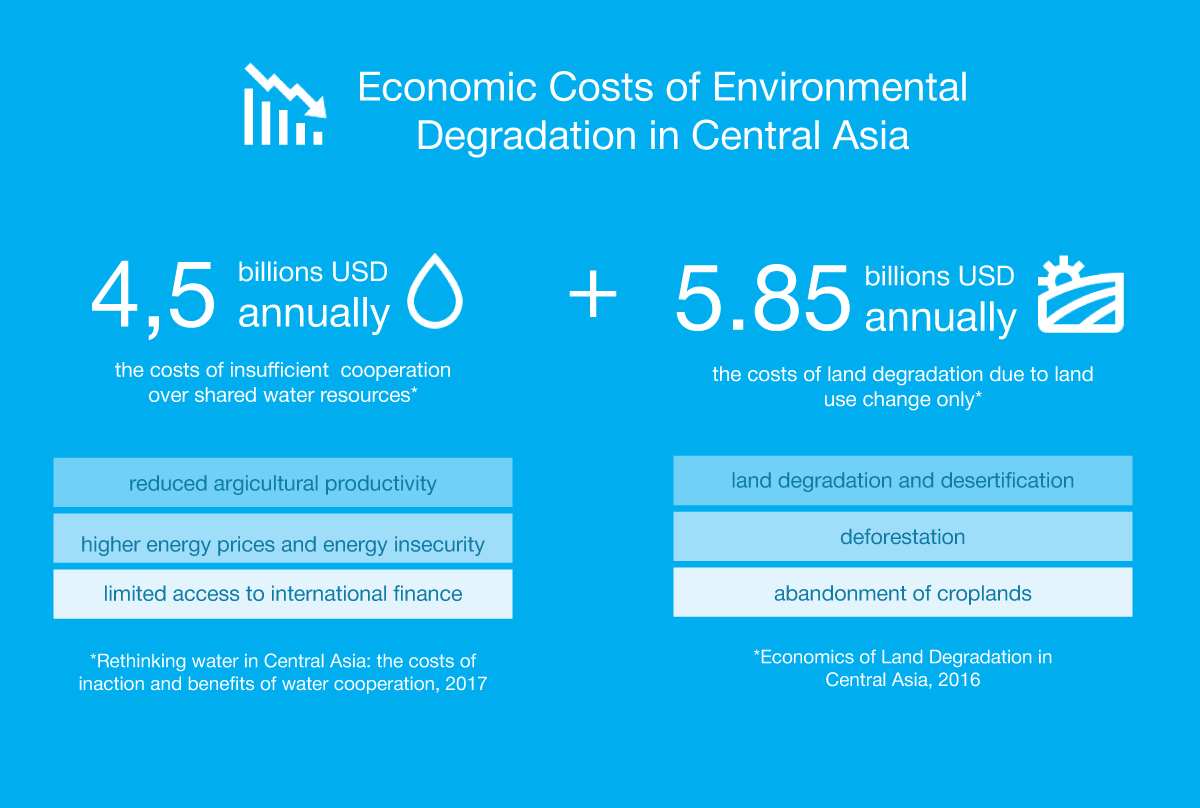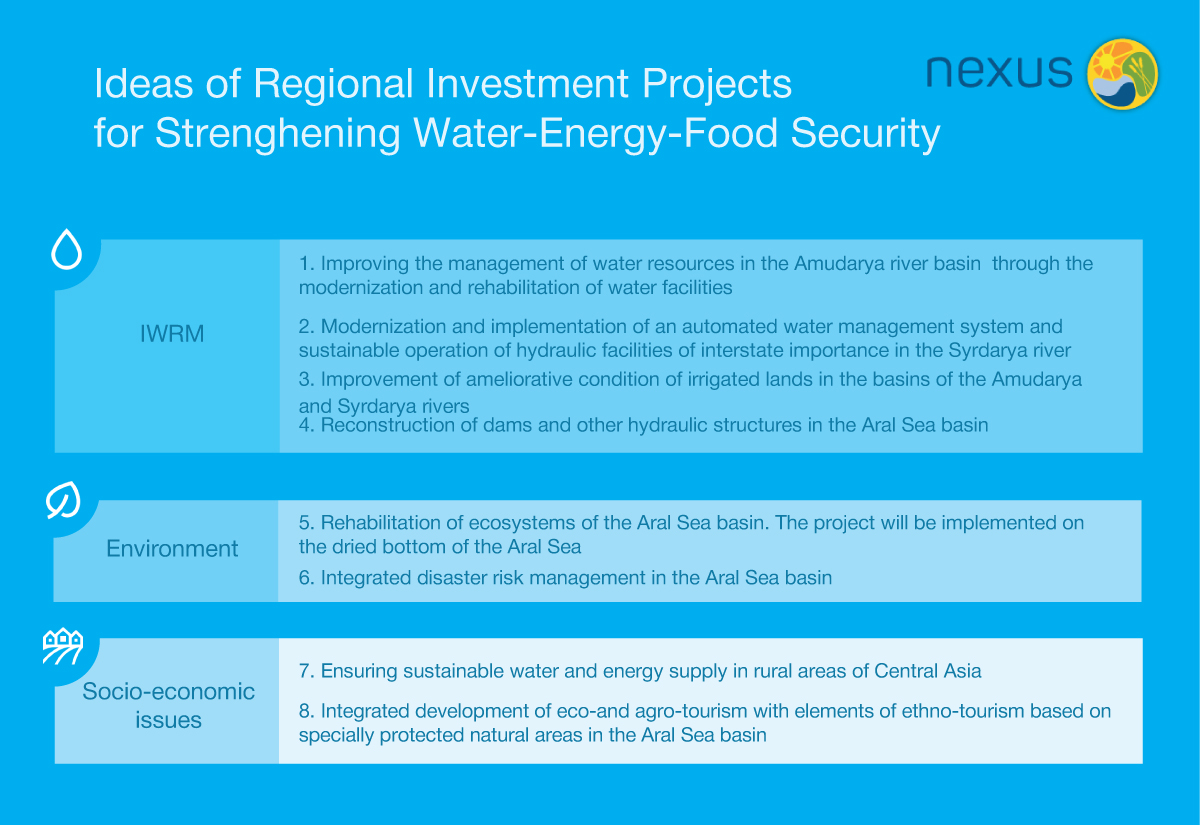The European Union is one of the leading development partners in Central Asia. The EU Global Assistance Package for the region is 1 billion euros for the period 2014-2020. The main task of investments and grants of the European Union is to promote the sustainability of the region. It is worth noting that environmental protection and water resources management are among the priority areas of cooperation in accordance with the EU strategy for Central Asia, adopted in 2007. The EU implemented a series of long-term projects in the region: TACIS, WMBOCA, CAWECOOP, WECOOP, etc. These projects provided technical support, played the role of cooperation platforms, provided investments, and also contributed to capacity building.
In 2009, the EU-CA High Level Conference in Rome (Italy) created the EU-Central Asia Platform for Environment and Water Cooperation. One of the last meetings within the framework of this platform was held on January 24-25, 2019 in Tashkent. At the 6th EU-Central Asia High Level Conference on Environment and Water Cooperation the parties discussed the progress made by countries since 2015. In addition, delegations from Central Asian countries, representatives of the European Union and development organizations discussed areas for further cooperation.

Strengthening regional cooperation in Central Asia
During the conference, EU Special Representative for Central Asia Ambassador Peter Burian stressed that cooperation between the EU and the countries of Central Asia had strengthened in all areas. “The EU and partners in Central Asia need to build on the new momentum in regional cooperation and advance joint efforts in addressing together common regional challenges ranging from sustainable and transboundary water management to climate change adaptation and mitigation, from improved environmental governance to the transition to a circular economy. To this end, the EU is ready to share its experiences and advanced technologies,” said Peter Burian.
Along with strengthening regional cooperation, it is worth noting the efforts of countries in the field of environmental protection and water resources management. Legislative reforms are systematically carried out in the region, the principles of a "green" economy are being introduced, and great attention is paid to new technologies and raising the potential of specialists.
CAREC Executive Director Dr Iskandar Abdullaev made a review of regional environmental cooperation in Central Asia at the conference. Dr Abdullaev noted that over the past two years, the political situation in the region has improved significantly: 3 high-level meetings and 4 international conferences were held with an emphasis on regional cooperation. At the same time, Dr Iskandar Abdullayev stressed the need to move to concrete actions. Challenges in the field of environmental protection can lead to economic losses amounting to 16.5 billion US dollars per year. At the same time, the potential of environmental services in Central Asia is not measured and does not integrate into the national welfare system.

Cooperation with the Regional Environmental Centre for Central Asia
During the presentation, Iskandar Abudllaev also spoke in detail about the joint work of CAREC and the European Union. It should be noted that the European Union is one of the founders and the first financial partner of the centre. CAREC has implemented 22 projects with a total value of 13.9 million euros since 2001. Two of them are still active: UzWaterAware and Nexus Dialogue in Central Asia. In addition, the European Union provides financial and political support to the cooperation platform of Parliaments and Foreign Ministries of Central Asian countries, as well as the Central Asian International Environmental Forum.
Lyudmila Kiktenko, manager of the CAREC Environment Management Programme, presented the results of the Nexus dialogue project in Central Asia. The main objective of the project is the creation of favourable conditions for the development of multisectoral investments that contribute to the strengthening of water, energy and food security in Central Asia. In particular, the project is meant to contribute to the development of a new Action Program to assist the countries of the Aral Sea Basin (ASBP-4)
The project has already carried out all the preparatory work to discuss specific investment intersectoral projects: an interdepartmental working group was formed, 13 national and regional working meetings were held, 17 national experts were involved, a regional expert group was created. As a result of the work, a portfolio of 28 projects was formed, 8 of which are regional. These projects are now finalized to be included in ASBP-4.

New partnership strategy
The conference also focused on discussion of further joint work. The parties expressed their commitment to continue cooperation in the field of closed-cycle economics, adaptation and mitigation to climate change, as well as water management. In particular, participants stressed the need to strengthen the political dialogue in these areas, increase capacity, improve monitoring and evaluation systems, as well as to introduce modern technologies and promote the water-energy-food relationship approach.
The participants also highlighted a number of cross-sectoral issues as priority areas for joint work, including raising public awareness and empowering women in environmental management and climate change.
The parties also agreed to consider the implementation of programmes aimed at improving the socio-economic and environmental situation in the Aral Sea basin. In addition, they expressed readiness to support the initiative of Uzbekistan to create an international innovation centre and a research laboratory in the Aral Sea region.
It should be noted that these areas of cooperation will be reflected in the European Union’s strategy for Central Asia, which will be presented in May 2019.
